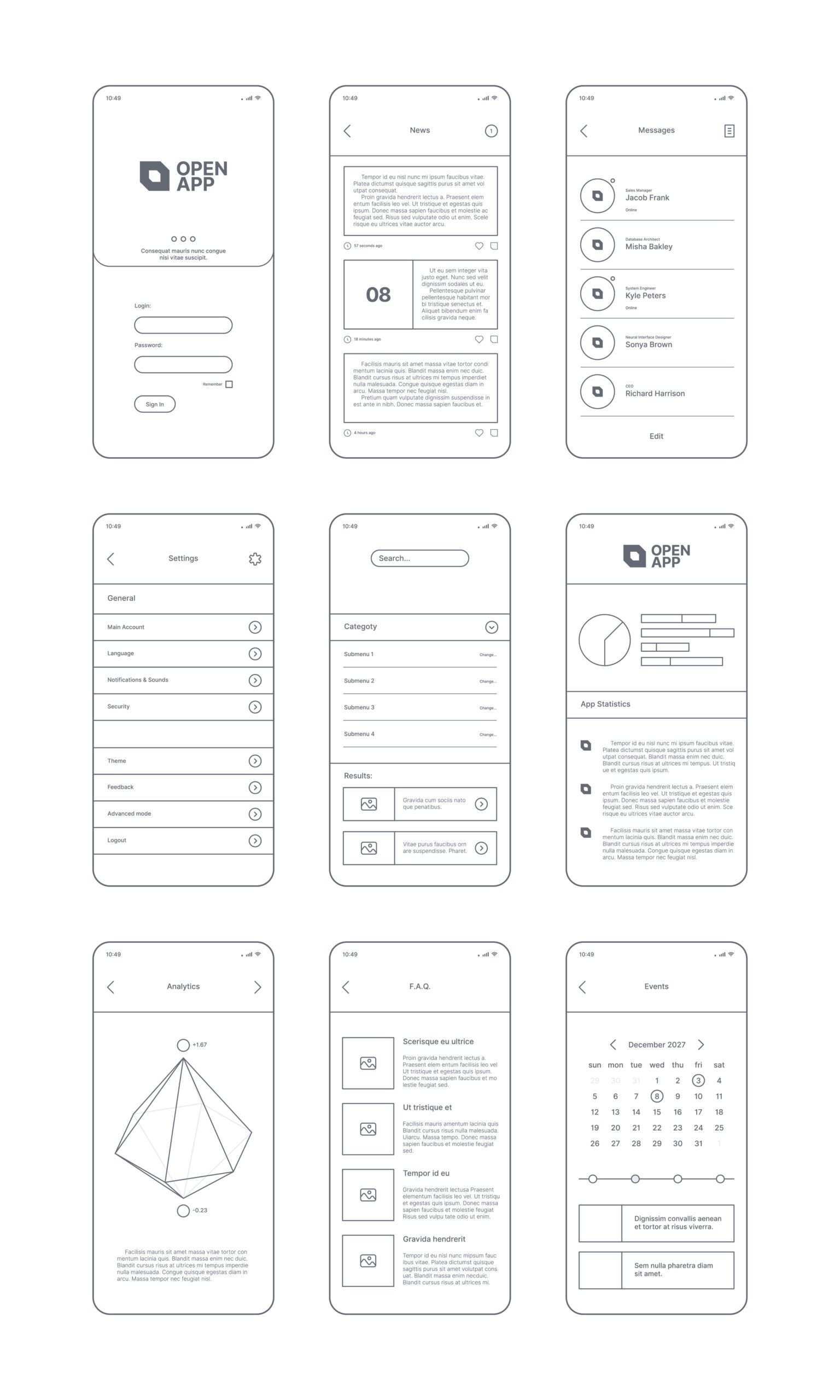Your Checklist to Mobile App Development for Startups
As a startup, it’s essential to take advantage of every opportunity that presents itself, and having a mobile application is just another tool to make it easier for your business. In the initial stages of startup building, you want to aim for as much growth as possible. When you have the chance to, you should think about how to best reach your customers and provide them with the easiest way to do business with you.
If you’re a startup owner, your biggest question right now might be whether to develop a mobile app for your business or not. The answer is a resounding “yes!” Mobile apps are a hot commodity and are only becoming more critical. Mobile apps are expected to generate over $935 billion in revenue by 2023.
We’re still in the adoption stage, where people are excited about having an app for their business, but it’s no longer new or novel. Demand for mobile apps is still increasing. This is good news for your business; if you want to be competitive among your competitors and stay afloat in this market, there’s no better time than now to think about developing one to put your good or service at the fingertips of consumers.

The first questions you might ask when deciding whether or not to invest in a mobile app are, “Will my business benefit from an app?” and “Is it worth it?” The answer to both questions is a resounding YES! If a mobile app can help you increase sales, become more efficient, or be more accessible to your customers, it’s well worth your investment.
A mobile app can uniquely promote your product or service, build brand recognition, and even make your company more human! It can also allow you to connect with your customers beyond just email and social media. Your app can make things easier for them by providing on-the-go access to your products or services.
Mobile app development is a costly and time-consuming process, but it’s also one of the best ways to ensure that you’re reaching your target audience. If that’s what you’re looking for, this checklist will help ensure you’ve covered all the bases when developing an app for your startup.
Why Startups Should Take Advantage of Building Mobile Apps

Mobile apps have revolutionized the way we live. As a startup, it’s crucial to ensure your business is ready for the future—and building a mobile app is one of the best ways to do that. Let’s look at the advantages of building a mobile app.
1.) It’ll give you a competitive advantage.
Mobile apps are the fastest way to get your product into the hands of potential customers. There’s a reason why nearly everyone uses mobile devices instead of traditional computers: mobile applications are more user-friendly, more convenient, and more personal. As a startup, you have a lot on your plate—it’s essential to establish yourself as quickly as possible so that you don’t miss out on potential clients and revenue.
Mobile apps are one of the best ways to do this because they allow you to reach more people at lower costs than almost any other marketing strategy. In addition, when you build a mobile app, you’re able to present your company appealingly and make it easy for users to connect with what you have to offer, which is a competitive advantage that will help you stand out from the crowd.
A mobile app can also help you boost sales by making it easier for users to connect with your company. Anyone who downloads your app will immediately be able to see what you’re all about and learn how they can benefit from it—they’ll be able to access anything they need right there on their phone or tablet whenever they need it. This means that even if someone doesn’t convert immediately, they’ll still be exposed to your business and may become a customer later on down the road
2.) You’ll probably have to do it sooner than later.
The world is increasingly moving towards mobile devices, and if you don’t have a mobile app for your company, you’re missing out on potential revenue. Desktop and web versions of your website will eventually become inadequate as more people gravitate towards the convenience of using their mobile phones to access information
A responsive site might look okay on your phone, but it isn’t an ideal experience. You’re forcing customers to zoom in on tiny text and pinch their fingers together to reach certain buttons on their screen that might not even work correctly. If you want to be accessible to everyone, especially your younger demographic, making developing a mobile app for your customers a priority is worth it.
3.) Make more money faster.
You’ll be in front of your customers faster, and a mobile app just opens the door to another avenue for transactions. The other important thing to consider is what it means to have a business that isn’t on mobile; you have a company that is missing out on the opportunity of being discovered by billions of consumers worldwide who have smartphones and are looking for services and products every day. Having an app allows you to reach all of those consumers.
In addition to providing an easy method for transactions, mobile apps also make it easier for businesses to communicate with their customers. If your company offers a subscription service, you can send notifications or alerts whenever new content is released or new deals are available. This is a great way to keep your users engaged and coming back.
Mobile applications also allow startups to gather more information on their users than they may otherwise have access to. For example, you might learn more about their behavior patterns and their shopping habits than what they allow you to see when they visit your website.
Checklist for Mobile App Development Success
When you’re first starting out, you want to get as much growth as possible to see if your business model is viable. It’s common in the early days of a startup to seek as much feedback as you can, and one way to do that is by reaching out to customers with a mobile application.
This can help provide you with valuable information about your target audience and what they expect from your products and services. Here are some steps that you can take to get started on developing your custom mobile app
✓ Have a business plan in place.

When you are ready to start building your mobile app, you need to have a business plan that is fully fleshed out. Having a plan will help keep you and your team on track with the development process and help you determine when the product is ready for release.
- Goals
- Audience
- Budget
- Resources + Tools to develop
- Timeline
- What’s the problem you’re trying to solve?
- Will this be for i0s or GooglePlay?
✓ Decide if you can build in-house or want to hire external resources.
The decision between in-house development and outsourcing will be based on your budget and time constraints.
- Do your internal teams have the time/knowledge to complete a mobile project?
- Need expertise in development, testing, UI/UX, etc.
✓ Create a visual representation of your mobile app concept.

This is typically referred to as a wireframe. A wireframe is the foundation for your product and allows you to test if it is worth developing into an actual application.
- Interface
- UI/UX
- Colors/themes
- Features, layout, buttons, icons
✓ Don’t skip out on automated testing after development.
Automated testing is the best thing you can do for your mobile application. By utilizing automation, your team can catch and address all errors and bugs that need fixing more quickly. Companies that take the time to run comprehensive tests and test cases are setting up their mobile app for higher success rates with customers.
Not Enough Mobile Expertise Internally?
Many companies don’t have the internal resources to tackle custom mobile app development, so they turn to offshore development companies. With expertise spanning almost every technology stack, language, platform, and device imaginable, experts from well-established development companies can provide top-notch work—and at a fraction of the price.
KMS offers project management teams and engineering services for mobile apps. In addition, we handle consulting, assessing current business infrastructure, mobile development, testing, and post-market maintenance.
As a startup, you and your team must stay organized. No matter how thorough your planning is, you must consult professionals before deciding whether or not to move forward with development. A professional can keep things running smoothly as the project progresses and help you avoid making expensive mistakes. Before starting, double-check all the small details because this is the time, more often than not, when you’ll need to make changes.
A professional mobile app developer like KMS can help you ensure that your product is well-designed and a clear understanding of what needs to be done (and how much it will cost).







